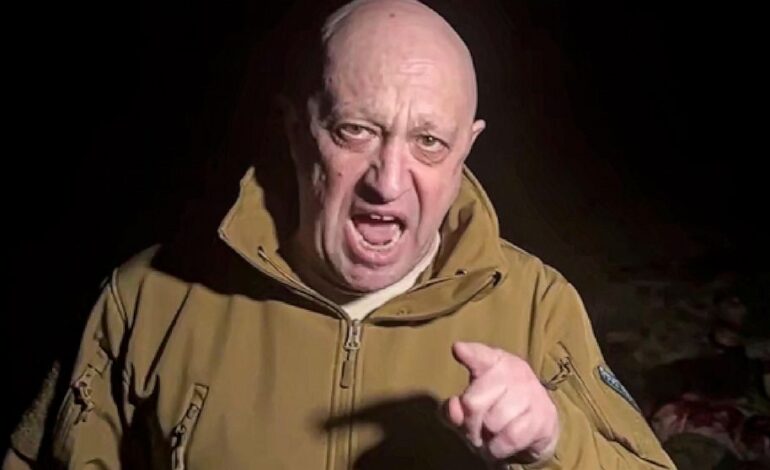Recent events in Russia have been surprising, even shocking. When the private army employed by Russia’s Wagner Group left Ukraine and moved toward Moscow last month, it caught everyone by surprise.
We’re used to thinking of Russian leader Vladimir Putin as a dictator who has complete control of his country. Maybe he does, but the Wagner Group mutiny certainly shook that idea. It presented Putin in a very different light than the one most Americans are accustomed to. It suggested he’s got some real problems, even if it’s hard to know what or how serious they are.
It’s likely to take time for the meaning of the events to shake out. Reports out of Russia have been incomplete and contradictory. Because of Putin’s suppression of free speech and the press, Russia lacks a strong, independent news media that we can rely on for the truth.
The initial reaction in the West was that the uprising weakened Putin. That ought to be good news for the U.S.-backed Ukrainian military, which has begun a counteroffensive in response to Russia’s invasion. But Putin could also use the chaos to further crack down on critics and strengthen his hand.
At the center of the controversy is Yevgeny Prigozhin, an oligarch who says he founded the Wagner Group in 2014. A former caterer and restaurant owner, he leveraged a relationship with Putin to build a business network, including a private army with an estimated 25,000 troops.
The use of private forces in warfare isn’t unique to Russia. In 2016, one in four U.S. personnel in Iraq and Afghanistan were private contractors, the Navy Times reported. But the Wagner Group has played an unusually prominent role on the battlefield. In Ukraine, it was heavily involved in the capture of the city of Bakhmut. It’s also fought in Syria, Libya, the Central African Republic and Mali.
Many Wagner fighters are former prisoners who took up arms in exchange for being released. Some have been accused of atrocities, including the killing of civilians, torture, rape and robbery.
Prigozhin clashed publicly with Russian military leaders, accusing them of incompetence. He seemed to hope Putin would remove the top generals, but that didn’t happen. Instead, he lost access to prisons for recruiting and was told to sign a contract with the military.
It’s not clear what became the last straw, but on June 24, his troops left Ukraine, took over a military headquarters in southern Russia and started toward Moscow. Then, abruptly, they stopped. After a wild weekend of confusing news, Prigozhin was exiled to Belarus, a staunch Russian ally. The Kremlin “went into overdrive” to project stability, the Washington Post reported.
It’s tempting, for us in the West, to see any development that seems to weaken Russian leadership as positive. That’s not necessarily true. From all indications, Prigozhin, if he were to regain influence, is every bit as murderous and unpredictable as Putin.
More seriously, we should be concerned about instability in Russia’s government and military. Russia and the United States are the world’s leading nuclear powers by far. Russia possesses 6,000 nuclear warheads, 1,584 of which are deployed, according to the Union of Concerned Scientists. Some are deployed in Belarus. Anything that makes their control unstable is cause for worry.
Putin has shown himself to be a ruthless leader, devoted to holding onto power at all costs. If he believes his authority is threatened, it’s not clear how he would react.
We Americans rely on our intelligence officials and foreign policy experts to understand what’s happening in Russia and how it’s likely to play out. But even the best experts cannot predict the future.
Winston Churchill famously described Russia as “a riddle, wrapped in a mystery, inside an enigma.” He said those words in 1939. They’re every bit as true today.
— Lee Hamilton is a senior advisor for the Indiana University Center on Representative Government; a distinguished scholar at the IU Hamilton Lugar School of Global and International Studies and a professor of practice at the IU O’Neill School of Public and Environmental Affairs. He was a member of the U.S. House of Representatives for 34 years.






Leave a Reply